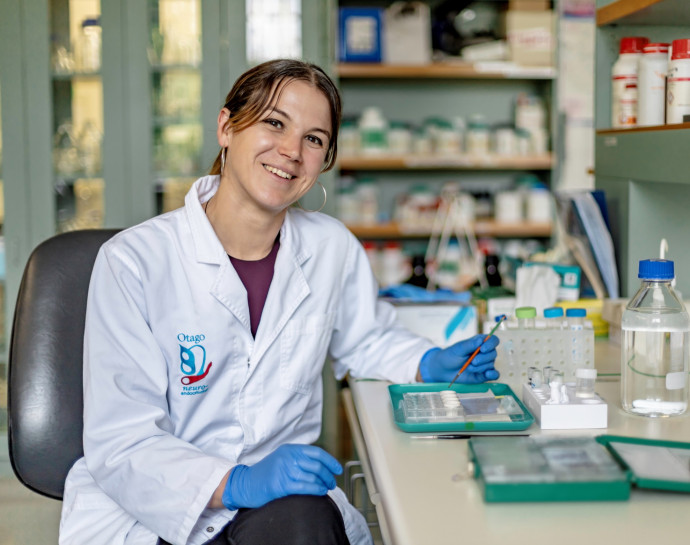It’s getting hot in here: Hormonal suppression of fever during pregnancy

Dr Teodora Georgescu of Te Whare Wānanga o Otāgo the University of Otago will use state-of-the-art neuroscience techniques to determine how fever is suppressed during late pregnancy to protect the growing foetus
Published on 2 Whiringa-ā-rangi November 2023
Experiencing fever during pregnancy can impair foetal development, potentially leading to premature delivery and increased infant mortality. For this reason, the body naturally suppresses its ability to develop a fever during late pregnancy to promote the successful birth of a healthy baby. Recent research has pinpointed the specific neurons responsible for regulating fever, but the signal that represses this response during pregnancy remains unknown.
Dr Georgescu has been awarded a Marsden Fund Fast-Start grant to investigate the trigger for fever-suppression during late pregnancy. She hypothesises that this signal comes from the foetus itself, specifically from the placenta, known as whenua in te reo Māori. During late pregnancy, the whenua secretes elevated levels of the pregnancy hormones placental lactogen and oestrogen. The fever-regulating neurons have receptors for these hormones on their surface, suggesting that they might be able to respond to these signals. To test this, Dr Georgescu will use state-of-the-art neuroscience techniques to observe how pregnancy hormones alter the activity of fever-regulating neurons in mice, and investigate whether removing their hormone receptors in the brain alters the fever response.
Understanding the mechanism behind fever-suppression during pregnancy has significant implications for the health of both pregnant people and their unborn babies. Not only will this study shed light on the adaptive changes that occur during pregnancy, but it could also provide new interventions for managing the symptoms of infection when fever is suppressed.

Dr Teodora Georgescu and mentor Professor Dave Grattan from the Centre for Neuroendocrinology (photo: supplied)
